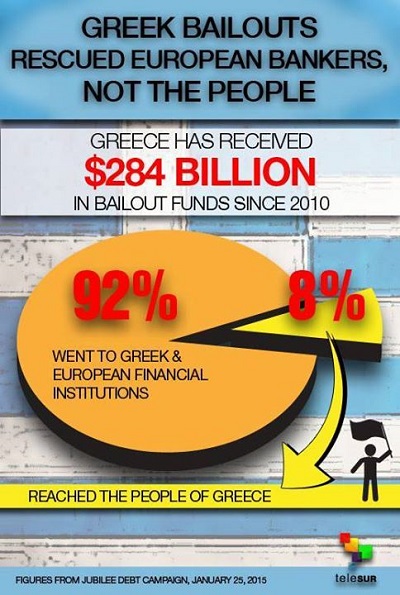Historical Auditing of Rothschild Banking Houses
Loss of private Rothschild papers
Large quantities of private and personal records are known to have been destroyed, and many of the Rothschilds requested that their personal papers and correspondence be destroyed upon their death. Papers concerning the routine affairs and management of many of the great Rothschild estates and houses have not survived in great quantities. https://www.rothschildarchive.org/collections/family_collections/
Destruction of records of the Naples banking house
Upon closure, the entire archives of the Naples house were transferred to the Frankfurt business, Together, the papers of both the Frankfurt and Naples houses represented more than 140 tonnes. The archives of the Naples house followed exactly the same fate as those of the Frankfurt house; the records were held by the Frankfurt partners and were destroyed after the closure of the Frankfurt business in 1901. See The Frankfurt banking house for information about this destruction. A very few papers went to Brussels, and from there to the French bank in the rue Laffitte, Paris, where they were destroyed in 1940. https://guide-to-the-archive.rothschildarchive.org/the-naples-banking-house
Destruction of records of the Frankfurt banking house
As early as the 1860s, archives of the Frankfurt House were transferred from the bank's premises in the Fahrgasse to the so-called 'vaults' of an outhouse at 25, Groβe Friedberger Strasse. These deposits later included business records of the Naples House which had been transferred to Frankfurt after the Naples house was bank was closed in the early 1860s. The rent of the vault in which the records were stored was £300 per annum. Regrettably, on the death of Wilhelm Carl von Rothschild, the last head of the Frankfurt bank, in 1901, 1,404 hundred-weight (approximately five railway carriage loads) of account books and banking papers were pulped.
Joseph Nauheim, a senior clerk at the London house, managed the liquidation of the Frankfurt business on behalf of Nathaniel, 1st Lord Rothschild. Nauheim had much to say about the archives. "There is an enormous accumulation of books, letters, documents etc., etc., dating from the year 1800 to the present time and there are also deposited the books and documents of the Naples House which were taken to Frankfurt in 1855." The oldest account book was dated 1795 and written in the hand of Seligman Geisenheimer, the founder of the Frankfurt 'Philanthropin' (a school for poor children). There were also old documents dealing with important transactions and the so-called amortisation books for each of the loans raised by Rothschild, letter copy books, and begging letters. In addition there was the documentation concerning the Crown prince of Hesse, correspondence between the different Rothschild banks and wills and testamentary papers. The archives of the Frankfurt business also included papers of the Naples house, which had been transferred to Frankurt in 1862 whe the Naples business was closed.
Thanks to the intervention of Nauheim, Dr Christian W. Berghoeffer, the former director of the Baron Carl von Rothschild Public Library in Frankfurt managed to rescue the oldest business letters and account books. He was authorised by Nauheim to set aside essential papers and make a number of copies, grouping the documents into six categories: documents prior to 1817, various 'ancient' documents, amortization books (one for each loan entered into), documents concerning the affairs of the elector of Hesse (up to 1866), relations between Rothschild houses, Rothschild family wills. The plan had been to preserve these documents as a ‘closed collection’, under the seal of the Frankfurt Rothschild Library.
However, this proposal met with the opposition of the then head of the Paris House, Alphonse de Rothschild. All that was achieved was that the oldest of the selected documents were packed into 24 chests and taken to Brussels and later from there to the Paris Rothschild bank in the rue Laffitte; in 1902, Nauheim was able to report to Lord Rothschild that all the books of the Frankfurt House up to the year 1817 and all documents, private correspondence and important letters including documentation concerning the subsidy payments handled by the Paris house, (especially those relating to the war indemnity paid by France in 1815), had been forwarded to the Paris House. Anxiety, no doubt fuelled by the nervous atmosphere generated by the Dreyfus affair would not allow even the papers sent to Paris to remain intact; under the instructions of Neuburger, Baron Alphonse' right-hand man, many of the remaining papers of the Frankfurt business transferred to Paris were destroyed.
According to the then-current German regulations, correspondence, and other important papers (including Account Books) for the period of ten years prior to the liquidation of the business had to be retained in Germany; thus records for the period 1 January 1890 to 1901 were stored in the Frankfurt office. However, these papers, were shredded in the spring of 1912 on the instructions of Herr Ulmann.
The few documents that remained were kept in Paris by the legal department. The papers were preserved in a special room in the rue Laffitte, separated from the archives of the Paris house. In 1940, these papers were destroyed on the instructions of M. Ettinghausen. https://guide-to-the-archive.rothschildarchive.org/the-frankfurt-banking-house
EU SHOCK CLAIM: Iceland would have gone 'BANKRUPT' if it had been part of the bloc
ICELAND successfully survived a sovereign bankruptcy and collapse in 2008 thanks to being outside of the EU as it allowed the country to “recuperate, despite the proportionate vastness of their banks’ liabilities”, campaigner and MEP Daniel Hannan claimed in his bombshell book.
Greg Clark reveals May has no policy on immigration after Brexit
Iceland is not a member of the European Union but it does have access to the bloc’s single market through its membership of the European Free Trade Association (EFTA) and European Economic Area (EEA). This means goods, services and people can move from the EU into Iceland and vice versa. The UK was a founding member of EFTA in 1960, but left to join the EEC common market in 1973.
Last month, Amber Rudd became the first senior minister to publicly break from the official Downing Street line when she said an EEA deal could provide a way to break the parliamentary deadlock if Mrs May’s deal is killed in the Commons.
A growing number of MPs are said to be warming to the idea of this arrangement as a way to break the parliamentary deadlock.
In his 2016 book "What Next: How to get the best from Brexit", campaigner and Conservative MEP Daniel Hannah suggested that the very reason why Iceland was able to “recuperate” from its financial crisis was because it had never been a member of the EU.
The MEP noted: “Most people in EEA states are content with their current arrangements.


“Icelanders could see that being outside the EU has allowed them to recuperate, despite the proportionate vastness of their banks’ liabilities.”
The Conservative politician added that the former Prime Minister of Iceland Sigmundur Davíð Gunnlaugsson of the centrist Progressive Party once said that “recovery could have not happened” if Iceland had been part of the EU.
Mr Gunnlaugsson reportedly said: “We might have gone the other way and become a bankrupt country.
“Icelanders had only to look at Ireland, Greece and other EU states to see what their fate might have been.”

Last month, Iceland's foreign minister told Emily Maitlis on BBC Newsnight that he welcomed the idea of the UK joining EFTA or EEA.
Guðlaugur Þór Þórðarson said: “We would be very positive towards the idea of the UK joining EFTA or the EEA.
“Of course, I am just speaking for myself and we are not going to interfere with UK politics but you are the ones who established EFTA.
“The debate was the same then – you wanted to trade with the rest of the world, not be a part of the customs union and that’s why you established EFTA.”





